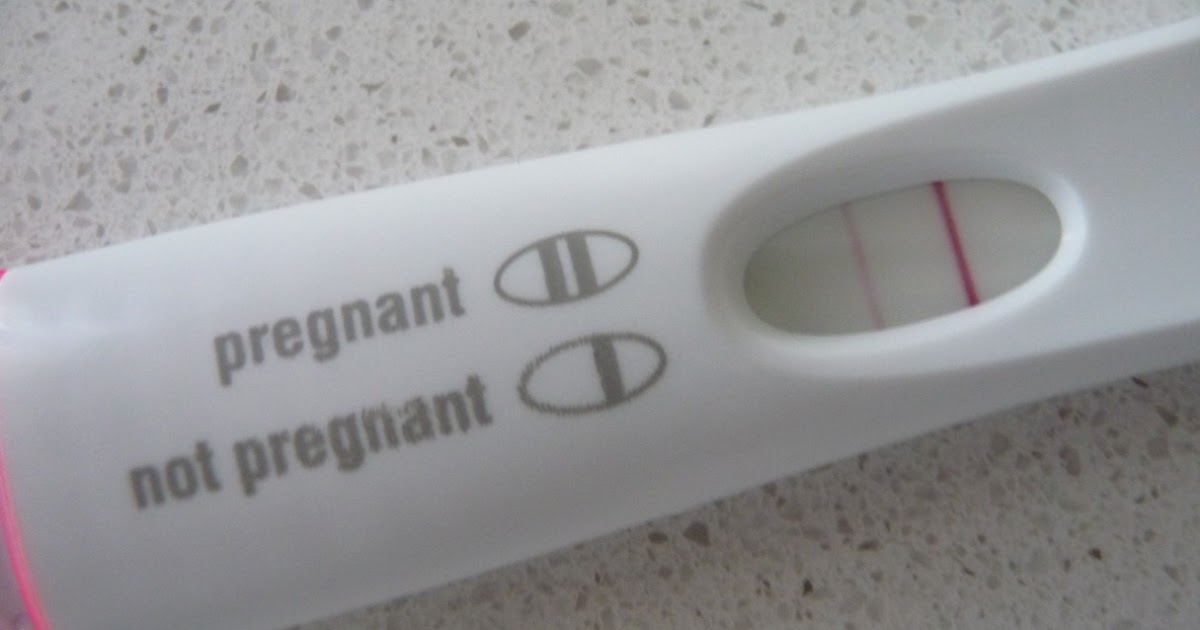Table of Content
The body goes through countless changes in the first trimester, and one of the first indicators is a change in the hormones that leave the body through urine. Make sure to follow the test directions for how long to wait before checking the results. That's usually a line or another symbol that you can see in the result window. If you don't see that line or symbol, then the test isn't working. Your IVF provider will let you know when to take a pregnancy test, but generally, you should wait about two weeks after treatment. For some people, that works out to be about the time when they will experience a missed period, which might prompt them to take a pregnancy test.
For the most reliable results, wait until after the first day of your missed period to take a pregnancy test. Small amounts of hCG can sometimes be detected in the urine about 10 days after conception or becoming pregnant. Testing too early may result in a false negative, as your hCG may be too low to detect. HCG begins rising after implantation, which typically occurs around 8-10 days after ovulation. To understand how pregnancy tests work, it helps to know the basics of ovulation and implantation.
unwanted pregnancy: is this false alarm?
In some countries, strip tests may only be available for purchase online . In the USA for example, you may be able to purchase pregnancy tests at a dollar store or discount store. Your healthcare provider can also perform a blood test .
Waiting another 1 to 2 weeks after a missed period will help improve the accuracy of the results . A false negative result usually occurs because the pregnancy test was taken too early to detect the pregnancy. If you get a negative result, but you still think you could be pregnant, take another test in a few days. It is possible to get a false positive result on an early pregnancy test before a subsequent test comes back negative. In some cases, that's because very early testing detected a chemical pregnancy — an egg that was fertilized but for some reason never implanted.
Other Topics in Patient Care & Health Info
Qualitative tests measure whether hCG is present in your blood or urine. This is especially true if your period is not yet late, or if your period is only a couple days late. Qualitative point-of-care and over-the-counter urine hCG devices differentially detect the hCG variants of early pregnancy. Ovaries release an ovum on around day 14 of the cycle. An unfertilized ovum can remain viable in the female genital tract for about 5 to 8 days. Hopefully, this information is helpful to understand the value of not testing too early for pregnancy, so you can have peace of mind knowing your results are accurate.

You get the most accurate results if you wait up to 5 minutes, though this can vary by brand. Read the package instructions to learn exactly how long you'll need to wait to confirm a negative or positive result. Even if your pregnancy test is negative, it’s important to listen to your intuition when it comes to your body. Speak to a healthcare provider if you have any concerns about your health or menstrual cycle. A small sample of blood is drawn with a needle and sent to a laboratory . The results can take from a few hours to more than a day.
Home pregnancy tests: Can you trust the results?
We suggest waiting because the rate of early pregnancy loss is high, and it’s possible that you might have had a chemical pregnancy. Many home pregnancy tests available today are midstream urine dip tests, which are the traditional “pee-on-a-stick” tests and are fairly easy to use. There also are tests in which you pee into a cup and dip a test strip into the urine. The New York Times published a story ranking the best home pregnancy tests, citing a midstream test with an ergonomic grip as the easiest to use and most accurate. A false-positive might happen if you had a pregnancy loss soon after the fertilized egg attached to the uterine lining.
For example, your doctor may order two beta hCG tests a few days apart to see whether the level of hCG is increasing as expected or not. This might be important if you had trouble conceiving, have a history of early miscarriage, or an ectopic pregnancy is suspected. If you are considering taking a test before your period is late, it is important to consider the pros and cons before you do.
"Early results" pregnancy tests promise results as soon as three to six days before your missed period. These tests are more sensitive than standard tests, but getting accurate results that early is more difficult simply because ovulation and implantation times can vary. If you have irregular periods, it can be even more difficult to know when might be an accurate time to try an early test. If you take a pregnancy test before you have missed your period, you increase your chances of getting a false negative result. The best way to tell if a test is sensitive enough to pick up the smaller amounts is to read the fine print. Some urine pregnancy tests can detect lower levels of hCG.

In a normal pregnancy, an egg is fertilized in the fallopian tube and then travels into the uterus, where it implants in the uterine wall. After implantation, production of hCG starts from cells in the developing placenta . Trace levels of hCG can be detected as early as eight days after ovulation. Thankfully, urine-based pregnancy tests have evolved substantially. Women now have access to advanced tests that can detect a pregnancy as early as eight days after ovulation. But while many home pregnancy tests are marketed as simple and effective, getting accurate results comes down to how early in your ovulation cycle you take the test.
These days you can find out you're expecting much earlier, faster and with better accuracy using home pregnancy tests. Tests labeled for early pregnancy detection may be able to detect a pregnancy several days before your expected period. However, the most accurate results come after your period is late. A certain leading brand in the market claims it will detect pregnancies in 69% of women four days before the missed period.

Some home pregnancy tests suggest doing this no matter what your first results are. Some pregnancy tests can spot hCG before you miss a period. But the results will be more accurate if you wait until the first day of a missed period. Many clinics will schedule you for a pregnancy blood test at the 14-day mark. A blood test can detect lower levels of hCG and is considered even more accurate than urine tests.
And yes, it’s true that any line you see in the pregnancy test result panel, no matter how faint it is , means that there's hCG in your system — and a baby in your future. The more sensitive the pregnancy test, the more likely it is to detect pregnancy early. But more sensitive pregnancy tests are also more likely to return false positives. If the sensitivity of a stick is low it needs a higher amount of hormones to light up. If the sensitivity of a stick is high, it needs only a small amount of hormones to give a positive result. So, very early in the pregnancy a good sensitive urine pregnancy test will give a positive result before a less sensitive one.

You don’t necessarily need a blood test to confirm a positive at-home pregnancy test. If the at-home test said you’re pregnant, you’re likely pregnant. That said, your doctor might still order one, especially if you request it. Quantitative pregnancy tests measure the amount of pregnancy hormone in your blood.
If you expect your period on Wednesday, Thursday would be the day of your missed period. Tests tend to be more accurate after your missed period. Likewise, first morning urine may be more concentrated and detect hCG more accurately. Menstrual cycle length and ovulation date can vary cycle-to-cycle, so it’s easy to miscalculate when your period is due .
Advances in home pregnancy tests give women greater insight into what’s going on in their bodies sooner than ever before. No matter what your childbearing plans might be, it’s essential to get quick, accurate results at home to plan your next steps accordingly. The earlier you take a home pregnancy test, the harder it is for the test to find HCG. For the most accurate results, take a home pregnancy test after the first day of a missed period. Most home pregnancy tests work 99 out of 100 times if used after a missed period. Menstrual bleeding typically begins 14 days after ovulation.

No comments:
Post a Comment